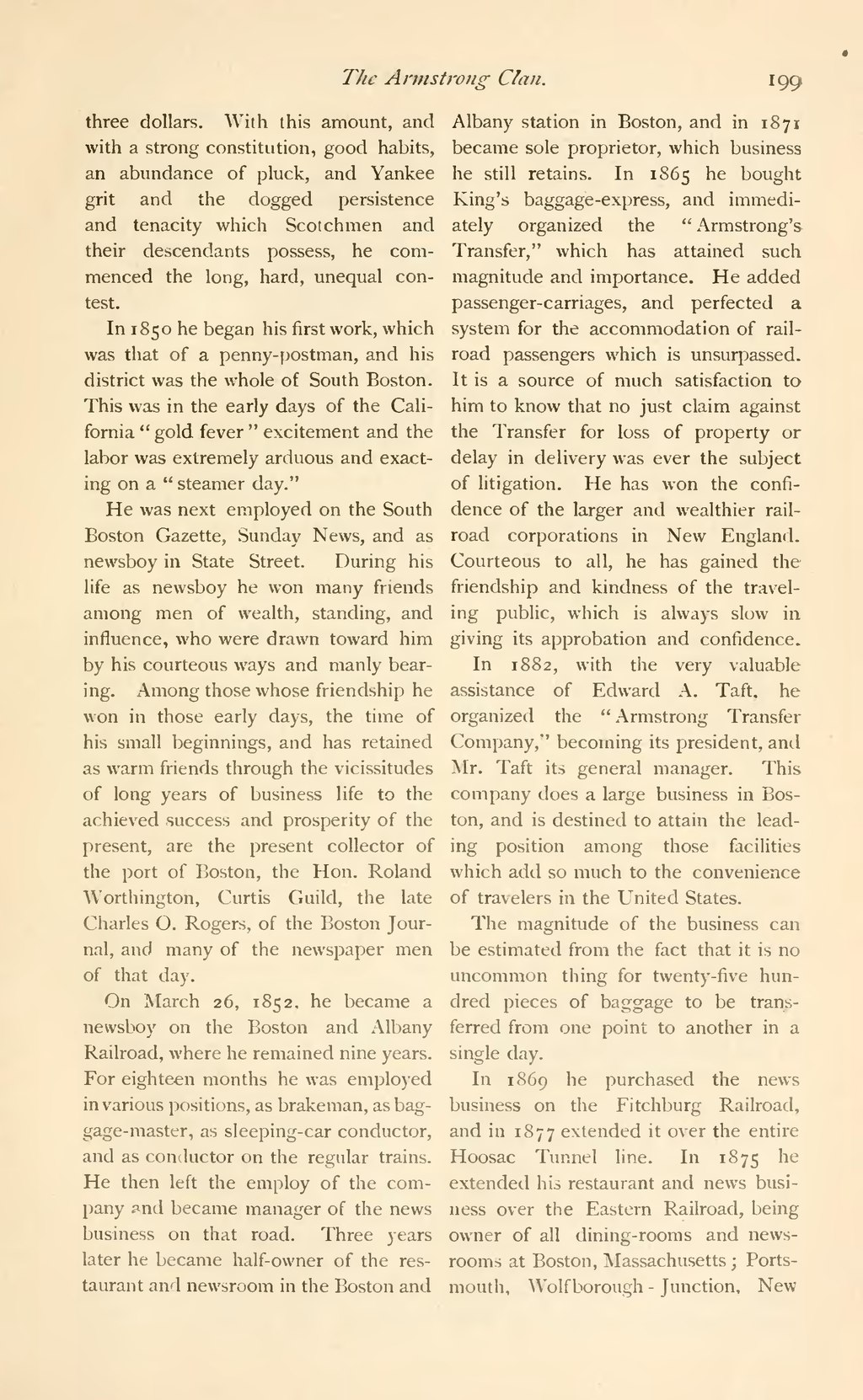three dollars. With this amount, and with a strong constitution, good habits, an abundance of pluck, and Yankee grit and the dogged persistence and tenacity which Scotchmen and their descendants possess, he commenced the long, hard, unequal contest.
In 1850 he began his first work, which was that of a penny-postman, and his district was the whole of South Boston. This was in the early days of the California "gold fever" excitement and the labor was extremely arduous and exacting on a "steamer day."
He was next employed on the South Boston Gazette, Sunday News, and as newsboy in State Street. During his life as newsboy he won many friends among men of wealth, standing, and influence, who were drawn toward him by his courteous ways and manly bearing. Among those whose friendship he won in those early days, the time of his small beginnings, and has retained as warm friends through the vicissitudes of long years of business life to the achieved success and prosperity of the present, are the present collector of the port of Boston, the Hon. Roland Worthington, Curtis Guild, the late Charles O. Rogers, of the Boston Journal, and many of the newspaper men of that day.
On March 26, 1852, he became a newsboy on the Boston and Albany Railroad, where he remained nine years. For eighteen months he was employed in various positions, as brakeman, as baggage-master, as sleeping-car conductor, and as conductor on the regular trains. He then left the employ of the company and became manager of the news business on that road. Three years later he became half-owner of the restaurant and newsroom in the Boston and Albany station in Boston, and in 1871 became sole proprietor, which business he still retains. In 1865 he bought King's baggage-express, and immediately organized the "Armstrong's Transfer," which has attained such magnitude and importance. He added passenger-carriages, and perfected a system for the accommodation of rail-road passengers which is unsurpassed. It is a source of much satisfaction to him to know that no just claim against the Transfer for loss of property or delay in delivery was ever the subject of litigation. He has won the confidence of the larger and wealthier rail-road corporations in New England. Courteous to all, he has gained the friendship and kindness of the traveling public, which is always slow in giving its approbation and confidence.
In 1882, with the very valuable assistance of Edward A. Taft, he organized the "Armstrong Transfer Company," becoming its president, and Mr. Taft its general manager. This company does a large business in Boston, and is destined to attain the leading position among those facilities which add so much to the convenience of travelers in the United States.
The magnitude of the business can be estimated from the fact that it is no uncommon thing for twenty-five hundred pieces of baggage to be transferred from one point to another in a single day.
In 1869 he purchased the news business on the Fitchburg Railroad, and in 1877 extended it over the entire Hoosac Tunnel line. In 1875 he extended his restaurant and news business over the Eastern Railroad, being owner of all dining-rooms and newsrooms at Boston, Massachusetts; Portsmouth, Wolfborough-Junction, New
